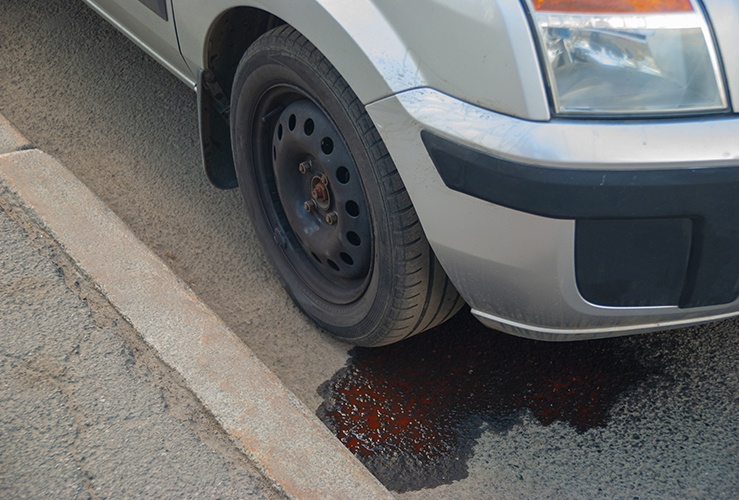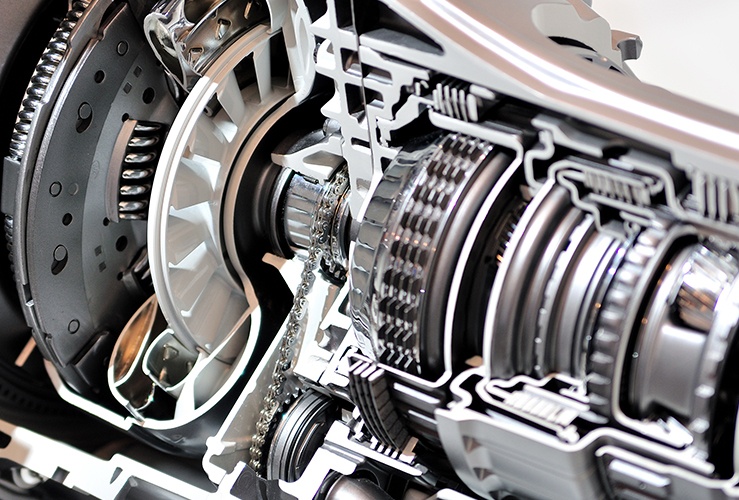Manual gearbox problems? Semi-automatic gearbox problems? Automatic gearbox problems?
Whether you drive a manual car, an automatic or a semi-automatic, all can suffer from gearbox problems.
As your gearbox is such a crucial element of your vehicle’s components, it’s wise to know the signs that may indicate you have gearbox problems so you can get any issues rectified before the gearbox damage becomes worse.
But what are the signs that a gearbox is failing?
In this article, we look at symptoms that may indicate you have a gearbox fault and why it is important to get any car gear problems looked at as soon as possible.
Why is it important to address gearbox problems?
Knowing the signs that a gearbox is failing means you can get repairs done before the damage becomes serious - potentially saving you money.
When it comes to gearbox problems in cars, it's important to address any issues early - or you'll simply be storing up more serious gearbox problems for later on.
Why is gearbox failure so significant?
Your gearbox - or transmission - is critical to the effective, safe functioning of your vehicle.
Unlike a broken tail light, for example, a faulty gearbox could mean your car is put out of action, and may result in you being stranded by the roadside.
But how do you tell if a gearbox is damaged?

Gearbox problems: What are the signs of gearbox failure?
There are key gearbox failure symptoms to keep an eye out for.
Wondering, is your gearbox broken? - Here’s 10 signs of how to tell if a gearbox is damaged.
Gearbox selector problems
1. Poor response from your car gearbox
If you're having trouble shifting gears, your vehicle may have a faulty gearbox.
A sticky gearbox - any sign of hesitation or complete refusal to change gears - may indicate your gearbox may have a fault.
Issues with gear changes may be a sign of electric, hydraulic or mechanical issues with your gearbox.
Manual gearbox damage
If your manual vehicle has gearbox damage, one of the bad manual gearbox symptoms that you may notice is a disconnect between changing gears and the actual increase in revs from the engine.
With a damaged manual gearbox the vehicle may also accelerate more slowly than the higher revs suggest.
Is it my clutch or gearbox?
To check if the issue in changing change gear is related to your clutch or or whether it could be a sign that your gearbox is failing, turn the engine off and see if you can select a gear.
If you are able to change gears this usually signals clutch trouble; however, if gear changes aren’t possible then the problem will be to do with the gearbox.
2. Refusal to shift gear
There are multiple possible reasons why your car won’t change gear, including incorrect transmission fluid, a clogged filter, faulty sensors and failing solenoids.
It’s important to get your vehicle checked out by a professional if it refuses to change gear.
3. Fluid leakage
Automatic transmission fluid (ATF) is present in automatic gearboxes to help reduce friction and therefore overheating.
If the transmission fluid begins to leak, you could have a serious problem on your hands.
Indeed, loss of ATF is a very common cause for automatic transmission failure.
Signs of an ATF leak
Automatic car gear problems related to an ATF leak may result in bright red fluid pooling under your vehicle. However, if the transmission fluid has been burnt in the gearbox due to friction, it could be brown or black - in which case a major repair to your gearbox is likely required.
If you have noticed fluid leaking from under your car but don't believe it to be transmission fluid, find out more about car fluid leak causes.
4. Check Engine Light
While the Check Engine Light can suggest a variety of issues, it may also mean you have a gearbox fault.
Don't be tempted to ignore this warning; your car has many sensors designed to accurately detect problems - hopefully before they become serious.
Check your coolant and transmission fluid levels, or take your vehicle to a mechanic to be checked over for any gearbox problems, or other potential issues.
Think your car may have a coolant leak? Discover the signs of a coolant link in our useful article.
5. Unusual sounds
An unusual gearbox noise could also be an indication that you have a damaged gearbox.
You may have a problem with your gearbox if it starts making a sound you’ve never heard before, or if you hear clunking, whining, humming or buzzing.
Why is my gearbox making a strange noise?
Your gearbox comprises hundreds of moving parts. If just one ball bearing is faulty, for example, such unexpected noises may result.
Gearbox bearing failure symptoms on manual transmissions tend to "clunk" while automatics often hum or buzz.
How long will a noisy gearbox last?
Unusual gearbox noises can be a sign that your gearbox is failing and may go at any time, so if you do notice any strange sounds coming from your gearbox you should get these checked out for any required gearbox repairs by a trusted mechanic.
The noises may be related to another fault
Beware that such noises may also be caused by problems with the exhaust, drive shaft or engine, and may not mean that your gearbox is faulty - but either way, as mentioned above, it's important to get the vehicle checked out by a trusted mechanic.
6. Shaking, jerking or grinding
With a vehicle with a gearbox bearing failure symptoms, you may experience shaking, jerking or grinding while behind the wheel.
Automatic gearbox issues often involve hesitation, slipping, or trembling during gear changes. Manuals are more likely to "grind" when suffering a gearbox fault.
Engine and transmission mounts are often the source of jerking and clunking.
7. Burning smell
If you notice a rubber-like burnt smell accompanied with fluid leakage, you could have a transmission issue. You may also see smoke.
Burnt transmission fluid means that your transmission is not getting the lubrication it needs.
These signs may suggest your transmission is nearing the end of its life.
If there's no leakage, such a smell may be caused by sludge or debris being burnt.

8. Quaking when in neutral
If your gearbox quakes or bumps when in neutral, you may need to replace the transmission fluid. But it may also suggest something more serious.
Either way, it’s best to get it checked out by a trained mechanic.
9. Gear slippage
A bad gearbox symptom, slipping gears is never a good sign, and may place you, your passengers, other drivers or even pedestrians in danger. Sudden braking or acceleration may be required to avoid collisions.
Many modern vehicles feature a “limp mode” or a “safe mode" which prevents drivers from proceeding with a damaged gearbox by defaulting to a single gear.
Gear slippage means you should visit a mechanic immediately for gearbox repairs.
10. Dragging clutch (manuals)
A dragging clutch happens when the clutch disc and flywheel fail to disengage when the clutch pedal is depressed.
Manuals may also pop out of the current gear - and a grinding noise may be heard.
Replacing your gearbox
If you have a broken gearbox, when you are looking to buy a gearbox to replace your old one it is important to match up the part numbers to be sure it’s the correct one for your car.
Different transmission types
Today there are over 200 transmission types on the road. Some car manufacturers will even change the types or designs of transmissions on different car models from year to year, whilst some car models may well have three or four types based on the engine size.
How do I know what gearbox is in my car?
The gearbox code is usually a code with a mixture of numbers and letters. Some car manufacturers will put the code into the owners manual.
Alternatively, the gearbox code can be found on the gearbox. The location of the gearbox code depends on the manufacturer of the car, but it will be either stamped into the gearbox or on a sticker on the gearbox.
Is it worth replacing a gearbox?
Wondering whether it is worth replacing a gearbox? This can often depend on the age and value of your vehicle, and whether you think the cost is worthwhile.
Depending on the severity of the issue with your gearbox, a full replacement may not be required.
It may be possible to repair your car gearbox. Bear in mind though, in a gearbox repair, only the faulty part is rectified, and the chances are that there could be another faulty part in the transmission.
How much is a gearbox repair?
A gearbox repair cost will on average cost you somewhere between £350 and £450, depending on the make and model of your car.




